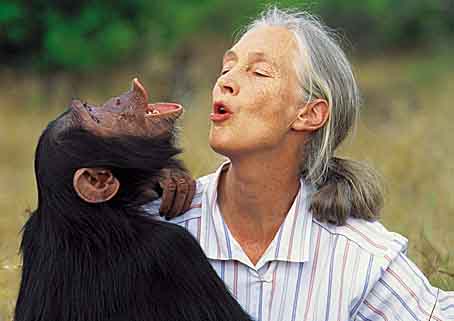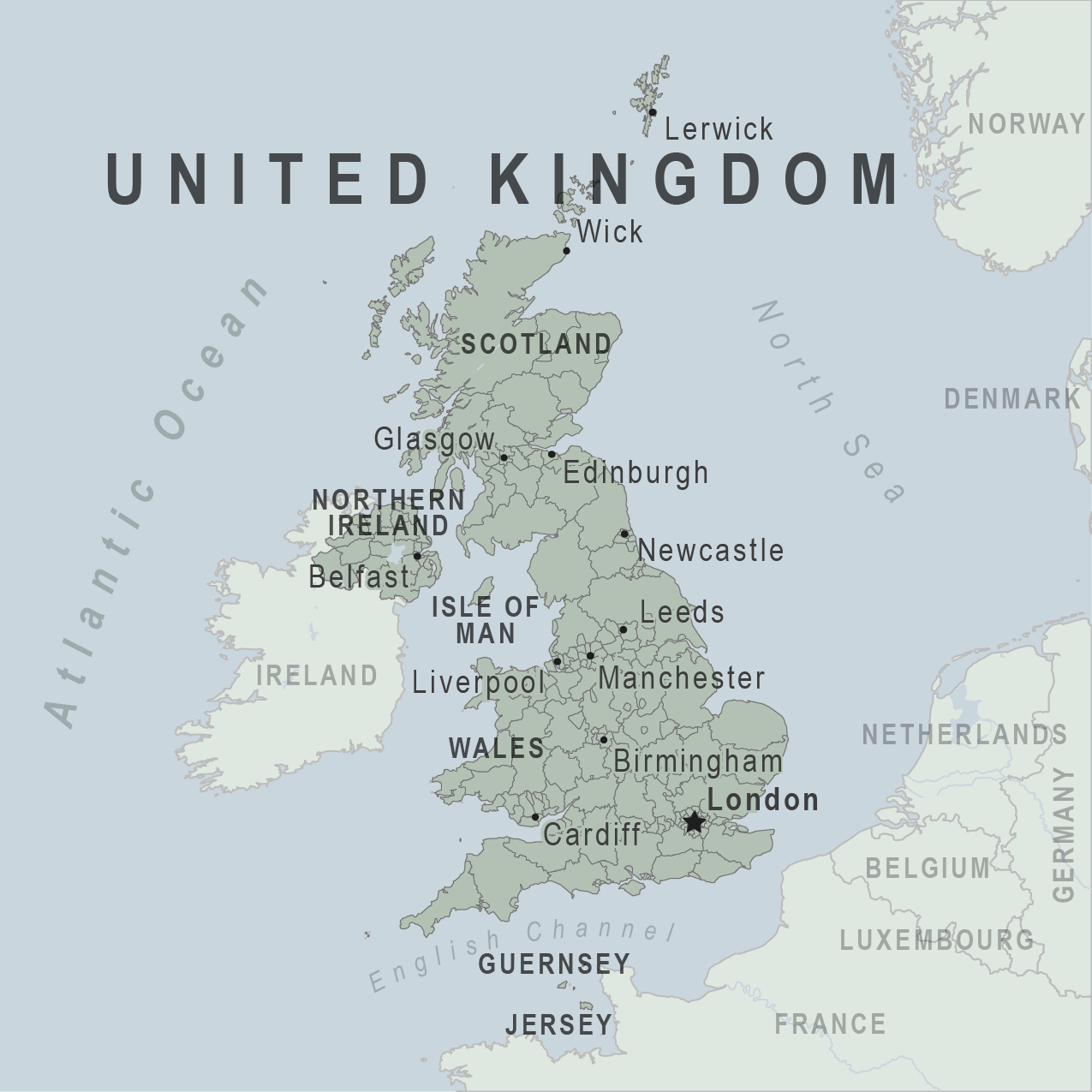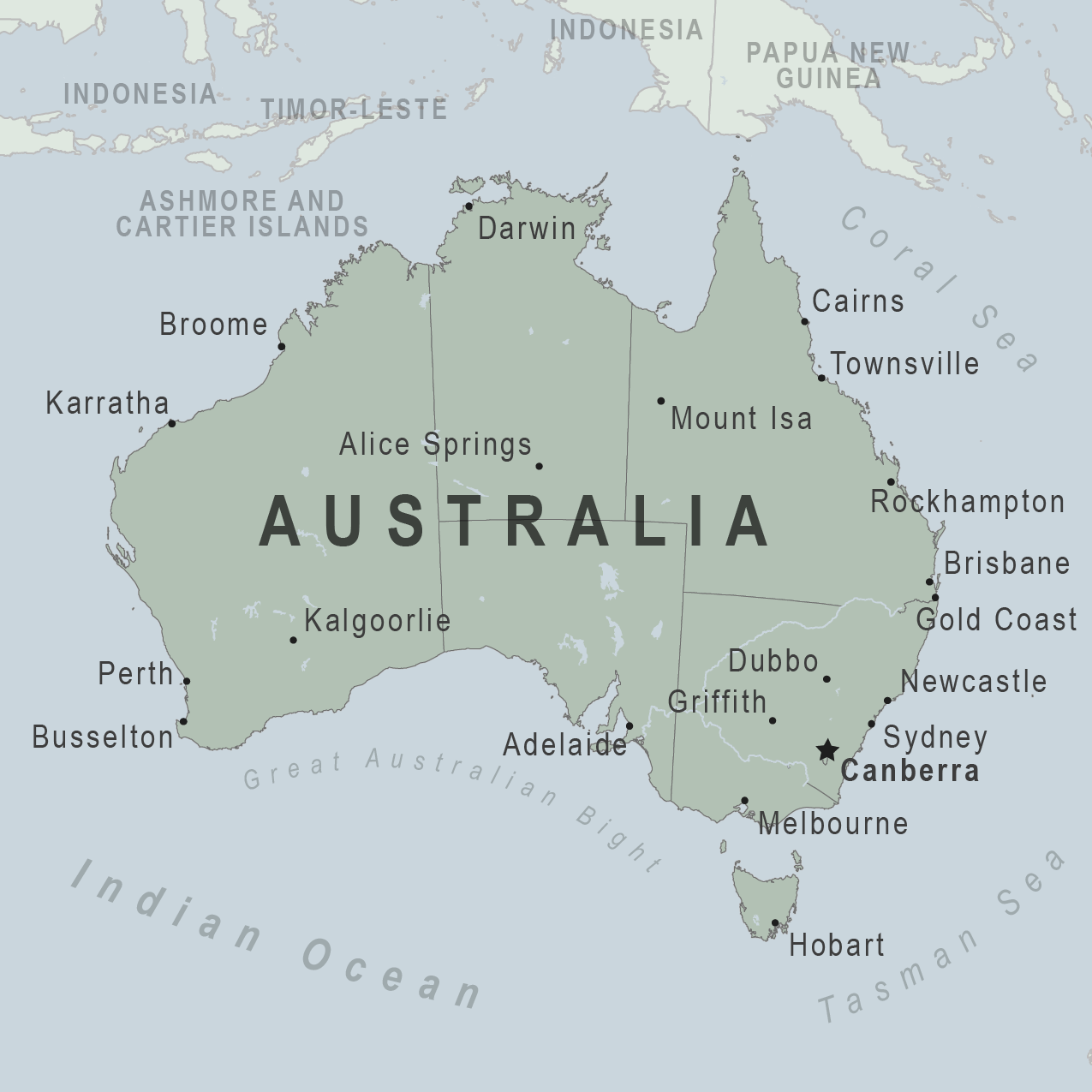Scientists and engineers from around the world are doing amazing things!
Link to lesson ideas for how to use the resources below.
- Jane Goodall, wildlife biologist and primatologist, LS2, LS4 (England)
- Elizabeth Blackburn, cellular biologist, LS1, LS3 (Australia, United States)
Dr. Jane Goodall - Wildlife Biologist

DCI Life Science
- LS2D Social Interactions and Group Behavior
- LS4A Evidence of Common Ancestry and Diversity
- LS4B Natural Selection
- LS4D Biodiversity and Humans
Country: United Kingdom

Bio and Projects:
Dr. Goodall studied wild chimpanzees in Tanzania, and was able to get close enough to document their (sometimes) strange behavior. She found out that chimpanzees have social behavior and sometimes behave like humans in their social and family interactions. They can communicate and show emotion. Dr. Goodall has received many awards and honors for environmental and humanitarian work as an advocate for conservation and animal welfare. She is on the board of the Nonhuman Rights Project.
What inspired me to go into science?
As a child, Jane dreamed of living among wild animals and writing about them. Tarzan and Dr. Dolittle were her favorite books, and she knew she’d be a much better jungle companion for Tarzan than that other Jane. From the beginning, Jane’s mother, Vanne, was encouraging. “You can do whatever you set your mind to,” she said. From - JaneGoodall.org.
Children Text Resources
The Jane Goodall Institute - information about Jane Goodall, her research, and her life work (likely grades 5+)
Books:
The Watcher: Jane Goodall's Life with the Chimps, by Jeanette Winter (grades 2+)
Biography - Who is Jane Goodall? (from the "Who Was..." series), by Roberta Edwards (grades 2-6)
Jane Goodall (TIME for Kids Nonfiction…)
Chimpanzees (Nature's Children (Children's Press Paperback), by Katie Marsico
Videos
Symphony of Science video, The Unbroken Thread (features Jane Goodall remixed audio/video)
Several videos of Jane throughout the Jane Goodall Institute site
Brief video on tool use by chimpanzees and several others featuring Jane Goodall, from Animal Planet
Teacher Materials
Background information:
In the Shadow of Man, by Jane Goodall
Jane Goodall: 50 Years at Gombe, by Jane Goodall and the JGI
Lesson Plans:
Dr. Elizabeth H. Blackburn - Cellular Biologist
DCI Life Science
-
LS1 From Molecules to Organisms: Structures and Processes
-
LS3 Heredity: Inheritance Variation of Traits
-
ETS2 Links among engineering, technology, science and society
Country: United Kingdom

Bio and Projects:
Dr. Elizabeth Blackburn is a cellular biologist from Australia (Tasmania). Shw now conducts her research in California. She studies the telomere, the structure at the end of a chromosome that protects it, and particularly how it relates to aging and cancer. She discovered an enzyme, telomerase, that replenishes this structure. She also studies bioethics, which relates to controversial subjects such as stem cell research. Dr. Blackburn received the Nobel Prize in 2009 for physiology and medicine.
Email: elizabeth.blackburn@ucsf.edu
What inspired me to go into science?
“I remember I had this chemistry set out in this little garden shed and I thought that was just the most wonderful thing. But it wasn’t the kind of thing I would talk about with my school friends. And I remember I had little guinea pigs and one of them had little babies. They were born very mature looking, not bare, they had fur on them. I put them in my hand and showed them to one of my friends and it was like—aarrghh! I thought they were so cute but she saw them as little vermin... I didn’t want to just know names of things. I remember really wanting to know how it all worked.” From an interview at Clinical Chemistry.
Children Text Resources
The Everything KIDS' Human Body Book by Sheri Amsel (grades 2-6)
Are We There Yet? A Journey Around Australia by Alison Lester based on a story from her life (grades K-4)
Stripes of the Sidestep Wolf by Sonia Hartnett (grade 8+) - historical fiction detailing life in Australia in the 1920's
Range of stories, games, and other resources for kids related to genetics from AMNH
Nana, What's Cancer? by Beverlye Hyman Fead and Tessa Mae Hamermesh, from the American Cancer Society (ES)
Cells - generic info(MS)
Videos
Short biography of Elizabeth Blackburn from SciShow (MS/HS)
American Association for Cancer Research interview with Elizabeth Blackburn (HS)
Advanced interview with Elizabeth Blackburn (HS/college, nature of research ideas)
Short video illustrating that all life is made of cells (MS)
Teacher Materials
From Molecules to Organisms, K-12 lessons curated and commented on by NSTA
Heredity and Genetics, K-8 lessons curated and commented on by NSTA
Spry Worms-Aging Genes, HS lesson plan